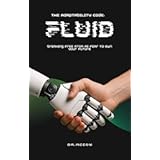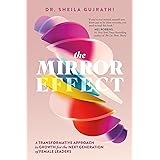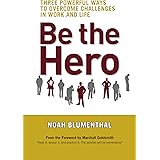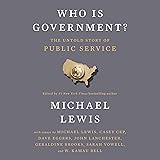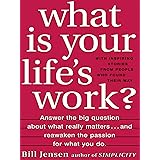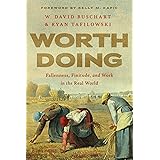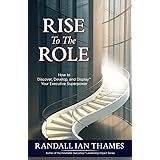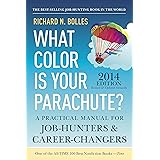Landing a dream job often hinges on more than just your skills and experience; it’s also profoundly impacted by how you present yourself during the interview. In fact, research indicates that hiring managers often make a decision within the first few minutes of an interview, sometimes even subconsciously. As emphasized in the video above by Leila Hormozi, preparing effectively, even at the eleventh hour, can significantly boost your chances of success. These last-minute adjustments aren’t just minor tweaks; they’re powerful strategies that can leave a lasting, positive impression.
Understanding these critical factors can transform your approach to any job interview, helping you to stand out in a competitive talent pool. From mastering non-verbal cues to strategic communication, let’s delve deeper into these essential tips for interview success.
The Power of a Genuine Smile: Making a Memorable First Impression
When you’re walking into an interview room or logging onto a Zoom call, the very first impression you make is incredibly important. As highlighted, a simple smile can be a game-changer. It’s not just about appearing happy; it’s about conveying warmth, confidence, and approachability. A genuine smile creates a positive emotional connection, influencing how the interviewer perceives you long after your initial greeting.
Consider the psychological impact: a smile can activate mirror neurons in the interviewer, prompting them to feel more at ease and positively disposed towards you. Studies in non-verbal communication frequently show that a positive demeanor is often perceived as a sign of competence and likeability. This initial impression can subconsciously set the tone for the entire conversation, making the interviewer more receptive to your qualifications and answers. Leila’s experience with an interviewee who didn’t smile for the first 20-30 minutes underscores just how much effort it takes to overcome a neutral or negative initial perception. To mitigate this, practice smiling before your video feed goes live or as you approach the interview location. This simple act primes your facial muscles and mindset for a confident, welcoming start.
Cultivating Genuine Interest: Beyond the Resume
Beyond simply answering questions, demonstrating genuine interest in the role and the interviewer is crucial. People are naturally drawn to those who show interest in them. Think about your personal relationships: you appreciate friends or colleagues who ask about your life, your work, and your opinions. The same principle applies in a professional interview setting.
This goes beyond a perfunctory question at the end of the interview. It involves active listening throughout the conversation and crafting insightful questions about their role, their journey with the company, or the challenges and opportunities within the team. For instance, you might ask, “What initially drew you to this company, and what has kept you engaged in your role?” or “What do you find most rewarding about working on X project/team?” This not only demonstrates your engagement but also allows you to gather valuable insights into the company culture and the interviewer’s perspective. Being genuinely curious can transform the interview from a one-sided interrogation into a more dynamic and engaging conversation, making you far more memorable.
Speaking Their Language: Tailoring Your Communication for Impact
The ability to ‘speak their language’ means aligning your terminology with that used by the company and in the job description. If a job posting for a “Senior Marketing Manager” emphasizes “full-funnel optimization” and “SEO-driven content strategies,” using those exact phrases in your responses demonstrates an immediate understanding of their needs and expectations. Conversely, if you’re applying for a sales manager role but exclusively use terms from a different industry, it can create a disconnect, even if your skills are transferable.
This strategy shows that you’ve done your homework and are already thinking like someone within their organization. Review the job description meticulously, paying close attention to keywords, specific industry jargon, and the company’s own unique phrasing for roles or processes. Furthermore, explore the company’s website, blog, and social media to absorb their voice and preferred terminology. By adopting their linguistic style, you signal to the interviewer that you are a quick study, adaptable, and already a cultural fit. This level of preparation indicates a deep respect for the role and a commitment to seamless integration.
The Art of Professionalism: You Can Never Be Overdressed
While dress codes have become more relaxed in many industries, for a job interview, the adage “you can never be overdressed” generally holds true. Dressing professionally, even if the company culture is casual, signals respect for the opportunity, the interviewer, and the company itself. It communicates that you take the interview seriously and have invested time and effort into making a positive impression.
The psychological principle behind this is often called “enclothed cognition,” where what we wear influences our mental processes and perceptions. Dressing sharply can boost your confidence, affecting your posture and overall demeanor. More importantly, it impacts how others perceive your competence and professionalism. While some might argue against overly formal attire in a casual setting, being slightly more polished than expected rarely works against you. If anything, it demonstrates initiative and attention to detail. This small investment in your appearance can set you apart from other candidates who may not have put in the same effort, affirming your commitment to excellence.
Strategic Compliments: Building Rapport Through Genuine Appreciation
Complimenting your interviewer might feel a bit unorthodox or even cheesy to some, but it can be an incredibly effective tool for building rapport and creating a memorable connection. The key is to make it specific, genuine, and based on prior research. Generic flattery is easily dismissed, but a well-researched compliment shows thoughtfulness and demonstrates your proactive engagement.
Leverage platforms like LinkedIn or company bios to find common ground or noteworthy achievements. Perhaps the interviewer recently published an article, spoke at a conference, or has a specific passion or project mentioned online. You could say, “I noticed your recent post on [specific topic] on LinkedIn; I found your insights on [key point] particularly compelling, and it truly resonated with my own approach to [related area].” Even if they are aware it’s a strategic move, as Leila points out, studies show that people generally appreciate compliments. It humanizes the interaction and makes you more likeable. This isn’t about insincere praise, but rather about acknowledging their expertise or contributions, which fosters a positive and receptive atmosphere, ensuring you end the interview on a high note.


